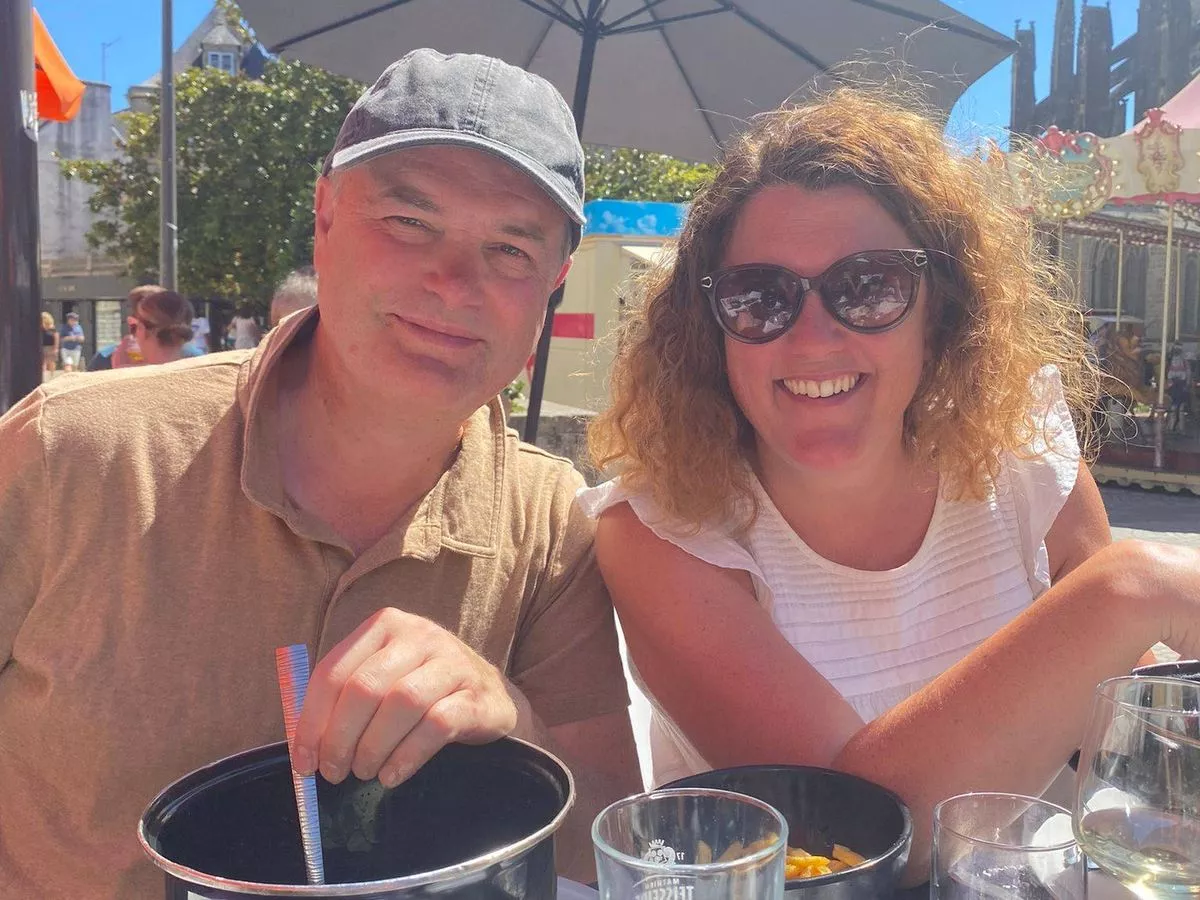Copyright mirror

A doting dad who dismissed his back discomfort as simply a sign of getting older died just three weeks later. Geoff Follin, a former school teacher-turned music tutor, was diagnosed with pancreatic cancer in May last year. The 58-year-old had been experiencing back pain and indigestion since February 2024, but attributed these symptoms to his age. His sudden death came as a shock to his family, less than a month after his diagnosis. His wife Nicola Follin, from Upholland village in Skelmersdale, shared the heartbreaking moment they received the devastating news. Nicola, 49, said: "As soon as they said pancreas, we both just looked at each other and thought the game's over pretty much. You're just in shock really. Palliative, that was what was mentioned, and they got the palliative team in straight away, who were amazing. "He was in hospital for a couple more days and then discharged to home, with care being led by the hospice. We thought there were months left at that time, and I think the doctors thought there was going to be a few months as well." The couple have three children Sam, 21, Isobel, 19, and Daisy, 17, who was sitting her GCSE exams at the time, reports the Liverpool Echo . Tragically, Geoff's health deteriorated rapidly and he died just days after their 21st wedding anniversary. According to Pancreatic Cancer UK, the vague symptoms of pancreatic cancer mean that in up to 80% of cases, the disease goes undetected until after it has spread to other parts of the body. It is the "deadliest" common cancer, with more than half of people dying within just three months of their diagnosis. Nicola has shared her husband's story to support the launch of a national clinical trial into a breath test, which has been revealed today. The breath test is being developed by Imperial College London. For the initial two-year study, scientists analysed over 700 breath samples from people with and without pancreatic cancer, as well as from those with other conditions affecting the pancreas. Now Pancreatic Cancer UK is investing a further £1,141,128.35 to progress the test to a multi-centre validation study, typically the final step before applying for regulatory approval, and then seeking adoption by the NHS . Patients will be recruited from the NHS Urgent Suspected Cancer Pathway – under which patients should receive an appointment within two weeks of a GP referral. The trial, involving over 6,000 patients with an unknown diagnosis, will see around 40 trial sites set up at hospitals across England , Scotland and Wales. At present, there are no screening or early detection tests for pancreatic cancer to assist doctors. Geoff underwent an ultrasound and a CT scan. However, while waiting for the results, he and Nicola were informed during a visit to A&E that he had terminal cancer. Nicola said: "Before Geoff was diagnosed, we weren't really aware of pancreatic cancer. Only in so much as it's a death sentence really, because often by the time they find it, it was too late. The breath test might have saved his life, mightn't it? Or he could at least have had another year or so with us. We could have just been together more - the five of us were always very close. We just loved being together." Pancreatic Cancer UK believes the test, which collects a one-off breath sample from a patient, has the potential to revolutionise the early detection of pancreatic cancer and save thousands of lives every year. Around 10,800 people are diagnosed with the disease annually across the UK. In the future, simply breathing into a bag at a GP appointment could be the vital first step towards giving many more people with the disease the chance to have surgery, currently the only potentially curative treatment. The test detects volatile organic compounds (VOCs) present in the breath. Thousands of these compounds circulate in the bloodstream, are filtered out when the blood reaches the lungs, and then exhaled.



